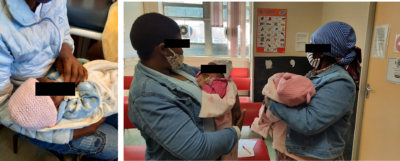
Children participating in the PETITE study at Tygerberg Hospital, South Africa. *All pictures were taken with permission.
The PETITE study, funded by Unitaid as a part of the larger BENEFIT Kids project, aims to expand antiretroviral options for HIV prevention and treatment in neonates. Compared to adults, the number of antiretroviral drugs with l dosing and safety information for neonates are few, and the majority are only available in liquid formulations. The WHO advocates for paediatric solid formulations (i.e., granules or dispersible). In December 2018, the WHO-led PADO identified as a high priority the need to assess the novel granule FDC formulation of abacavir/lamivudine/lopinavir/r (referred to as the “4-in-1”) in neonates. The PETITE study was designed to evaluate the pharmacokinetics (PK) and safety of the 4-in-1 in neonates exposed to HIV. The lead investigators for this study are Professor Adrie Bekker, Stellenbosch University, and Dr Tim Cressey at Chiang Mai University in Thailand.
The PETITE study rapidly generated the first single dose PK and safety data on the 4-in-1 solid formulation in neonates. Sixteen neonates were enrolled at Tygerberg Hospital in Cape Town, South Africa by the end of 2021. Interim PK results showed relatively high abacavir and lamivudine exposures but unexpectedly low exposures of lopinavir/ritonavir. While no safety concerns were observed, the PK results did not support the use of this 4-1 formulation in neonates due to the very low lopinavir/ritonavir exposures.
Under a protocol amendment, the trial is currently investigating an alternative paediatric solid abacavir/lamivudine and lopinavir/ritonavir formulations, which remains highly relevant to neonatal care. Eight neonates have completed Stage 1 (administration of a single dose of the new drug formulations) and interim PK analysis is underway. If drug concentrations are acceptable, another 16 neonates will be enrolled (Stage 2) to receive daily abacavir/lamivudine and lopinavir/ritonavir formulations to obtain PK data at steady state and collect safety data with longer-term use. Stage 2 is anticipated to start enrolment in January 2022.
The results from this study will inform the evidence-based guidance on use of these antiretrovirals in neonates who currently have very few antiretroviral treatment options.
The PETITE study is part of the BENEFIT Kids project which aims to improve children’s access to better treatment and prevention of multidrug-resistant tuberculosis. More information on PETITE and the BENEFIT Kids Project is available on the project webpage .





